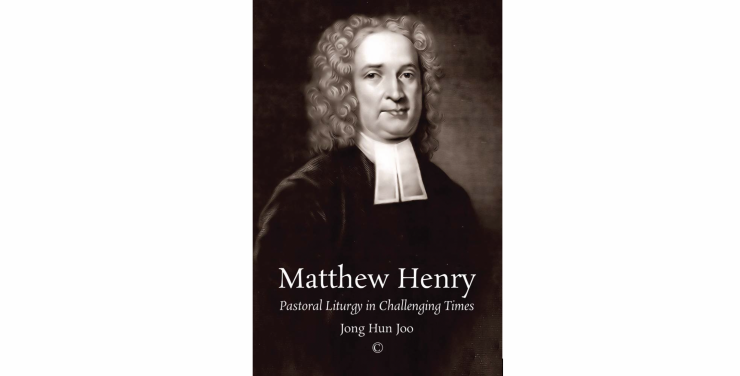Review: Matthew Henry: Pastoral Liturgy in Challenging Times

The latest edition of our Foundations theological journal was published at the end of November. It contains articles and book reviews of help and encouragement to those wanting to engage with scripture and theology at a deeper level, yet still being practical and applied.
One such book review is of ‘Matthew Henry: Pastoral Liturgy in Challenging Times’, Jong Hun Joo (Pickwick Publications, 2017), 207pp, £23.00 (Amazon):
Although not an easy read this book is certainly a valuable one. I believe that it would prove useful, in whole or in part, to three different groups of people: the scholar, the minister and the head of the family. Jong Hun Joo has done a great service by shining new light on Matthew Henry and his thought beyond just the commentaries with which most of us would engage.
The covering of the history of nonconformist liturgy was most enlightening and provides a useful contribution to intra-Reformed debates about the validity and place of liturgy in the wider Reformed tradition. It also demonstrated the complex practical and theological reasons behind its wider abandonment by the time of Matthew Henry. Meanwhile the section on family worship was both challenging – because I doubt any of us manage such a thorough family devotional life! – and useful. Any family hoping to take seriously Bible study and prayer together would benefit from this section, even if the rigorous schedule of the Henry family is not followed to the letter.
The extensive work on Matthew Henry’s understanding of the Sacraments was deep and thoughtful, though at times rather dense. The use of the phrase “improvement of baptism” was not adequately explained and was rather awkward due to this. On the other hand, the thoughts of Henry on preparation for, and reception of, Holy Communion were most timely and well laid out.
Much of the book is dedicated to the structure of the services led by Matthew Henry. This, and how it evolved from what came before in terms of Calvin, Knox, Baxter and the Westminster Directory was well laid out and clearly explained. It could, however, have benefitted from a comparison to the Book of Common Prayer, given the influence that book had not only on Baxter in particular but the entire milieu of religious services throughout England.
Ultimately, this is a real gem of a book with a wide number of uses. Perhaps the greatest problem is the academic nature of its style. This is not an “easy” book or a real page-turner and I fear that those without a higher education will struggle to engage with it. Often the paragraphs are so large they take up almost an entire page in a single block of text, something which could easily have been remedied. Given the academic background and origin of Jong Hun Joo’s work it is perhaps unfair to expect this book to be more accessible – it is just unfortunate, when its content is so good and relevant for our times.
Adam Young, Associate Minister at All Saints’ Church, North Ferriby, and Chaplain to the Yorkshire (North & West) Army Cadet Force.
Related articles
Stay connected with our monthly update
Sign up to receive the latest news from Affinity and our members, delivered straight to your inbox once a month.



